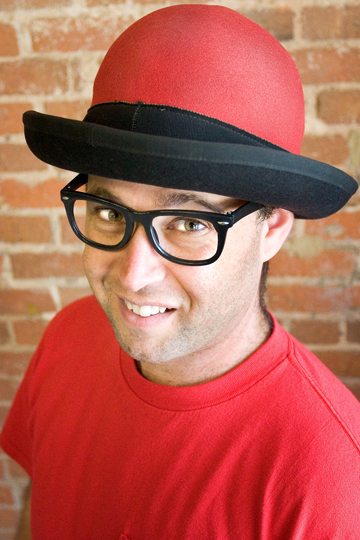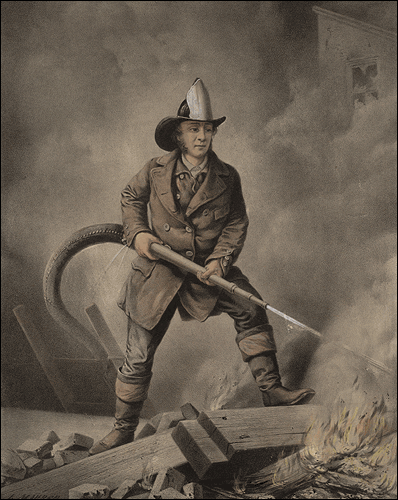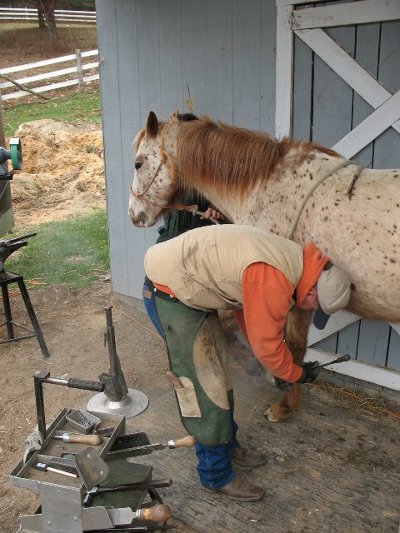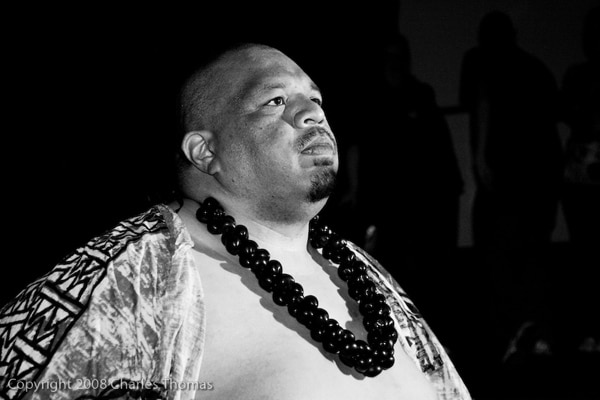Once again we return to our So You Want My Job series, in which we interview men who are employed in desirable jobs and ask them about the reality of their work and for advice on how men can live their dream.
Juggling isn’t just for clowns. It can actually be a career. Paul Miller is a juggler and variety arts performer who puts on shows for festivals, businesses, family events, and schools . Today he shares how he got into this unique profession. To learn more about Paul, check out his websites: Just Paul and Flow Circus.
1. Tell us a little about yourself (Where are you from? How old are you? Describe your job and how long you’ve been at it, ect).
My name is Paul Miller, I am 36 years old, and I grew up in the suburbs of Boston, MA. I have been a full time juggler/variety artist since 1999.
2. Why did you want to become a juggler? When did you know it was what you wanted to do?
I have always enjoyed playing with objects, using my hands, and being goofy. In high school I learned to juggle from the book Juggling for the Complete Klutz. In college I juggled a bit with friends in-between study sessions (and instead of going to class). After graduating with a degree in accounting, I took job waiting tables to “find myself.” During the following 5 years, I hung with a group of musicians and painters. When we were all hanging out doing our thing….my thing was juggling. It wasn’t long before I was better than all my friends and most of the people that I met. It was then I got the idea that I might someday become a juggler.
In 1997 I took an “Introduction to Mime” workshop at the Celebration Barn in South Paris, Maine with Tony Montanaro. That workshop changed my life forever. After that inspirational week I decided that I could and should be a full-time performer. One year later I moved to the Big Island of Hawaii to live at a juggling commune. The following year, after a short stint in Bali managing a sweatshop, I returned to Massachusetts and founded Flow Circus. I’ve been performing for festival, corporate, and family audiences ever since.
3. How did you learn the magic and juggling skills necessary for your job?
There are a variety of methods to learn the manipulation skills for becoming a juggler, magician, or variety artist. There are books, dvd’s, workshops, magazines, conventions, clubs, mentors, and schools. I have relied heavily on books, videos, and an occasional workshop and convention. The most important part of acquiring the skills is practice. Juggling or other manipulations can take hours, weeks, months, or years to master. Some people have a knack for picking up the necessary skills quickly. I suspect I am closer to average in that regard.
4. And of course just as important to a performer is his on-stage presence, his ability to banter, be personable, and win over the audience. Did you teach yourself those skills or do those aspects of the job come naturally to you?
Part of those skills are natural as I have a high tolerance for embarrassment. However presentation skills must be developed through rehearsal and performance in front of real people. I learned the majority of everything I know from performing on the street. On the street, if you’re not entertaining, funny, or otherwise engaging, people walk away. There is no better feedback than people turning around and walking away.
Open mic nights at comedy clubs are also great places to hone presentation skills. And there people don’t usually get up and leave.
The hard truth is that the first 100 or so shows are terrible. Fortunately, as a young performer, I didn’t know just how terrible I was. If it wasn’t for the college girl in Harvard Square that flashed me at one of my first street performances, I may have quit.
5. How do you go about finding gigs?
The market I’m targeting determines my specific approach to finding work. The best way I’ve found to get my name out there is to showcase (perform a short preview performance) at regional and state conferences. There are associations for school, libraries, festivals, fairs, colleges, and arts councils. These conferences are an excellent opportunity to get an act in front of entertainment buyers. Until an act is strong enough to showcase, I recommend researching local festivals and libraries on the internet and putting in calls or sending direct marketing materials.
For corporate and cruise ship work, I recommend finding a good agent.
6. What is the best part of your job?
Performing on stage for 300-500 people is the best part of my job. It is hard to describe the rush from engaging and choreographing an evening of laughter and joy. I also very much like the variety of work behind the scenes including web design, developing marketing materials, making sales calls, networking, brainstorming new routines, and practicing skills.
7. What is the worst part of your job?
When a show bombs. There are lots of reasons that a show might not go over very well. The audience wasn’t a good match for the act. There are distractions beyond the performers control. Language or cultural differences. Whatever the reason, it’s hard not to take a bad show personally.
8. What’s the work/family/life balance like?
My wife and I (no kids) spend a lot of time growing the business — developing marketing materials, networking, making sales calls, etc. We usually go on tour together so we don’t spend too much time pining away for each other. When we are not working, we hang with friends, watch movies, play games, and keep active outside.
9. What is the biggest misconception people have about your job?
That I perform at children’s birthday parties.
10. Any other advice, tips, or anecdotes you’d like to share?
If you want to be a juggler or other type of performer just go out, do it, and be yourself. There are so many mediocre performers out there because they are just copying what they saw the last guy do. The more you stay true to yourself, the more unique you will be, and the more you will stand out.
Tags: So You Want My Job







